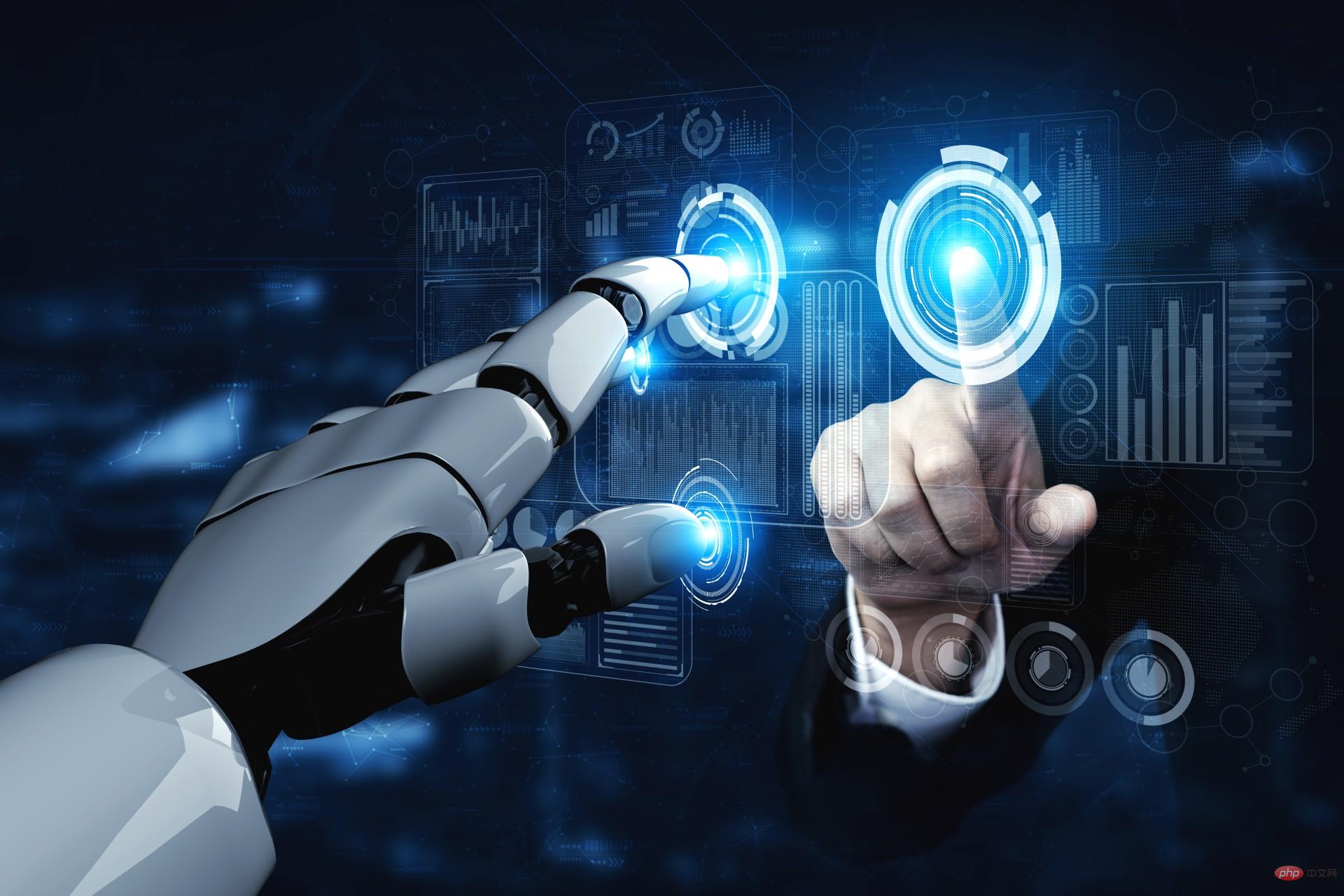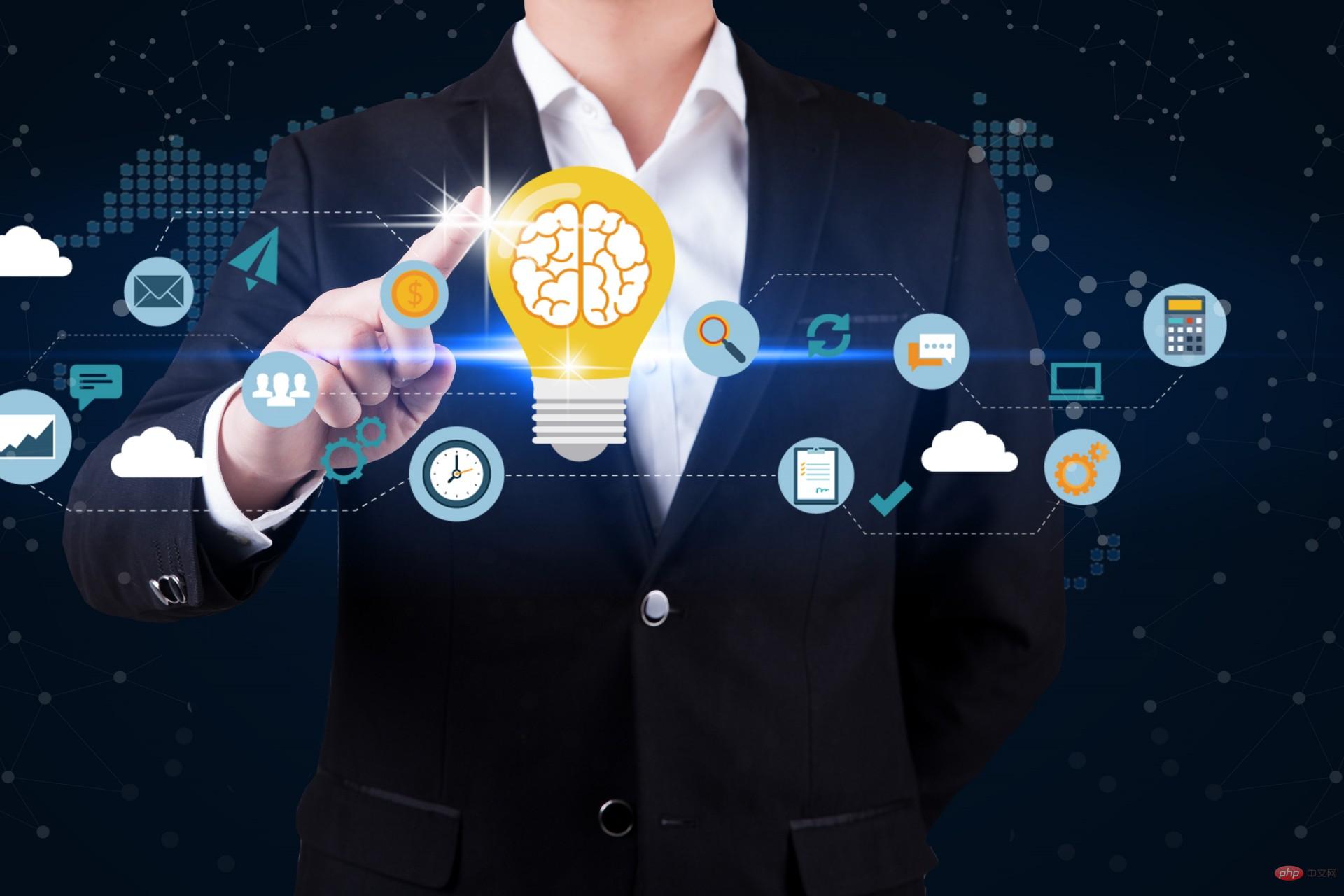Due to the power and revolutionary applications of this technology, quantum computing projects are likely to have become part of the defense research of many countries.
Today’s artificial intelligence is as self-aware as a paperclip. Despite the hype - such as a Google engineer's bizarre claim that his company's AI system has "come alive" and Tesla CEO Elon Musk's tweet predicting that computers will possess human intelligence by 2029 - But the technology still isn't capable of simple, everyday tasks. This includes driving a vehicle, especially when encountering unexpected situations that require even the tiniest bit of human intuition or thinking.

The sensationalism surrounding artificial intelligence is surprising considering that Musk himself has warned that if countries do not regulate it, artificial intelligence technology could become humanity’s “biggest existential threat.” Not surprising. But whether or not computers can achieve human-like intelligence, the world has summoned a different, equally destructive AI demon: precisely because today’s AI is nothing more than a crude, unintelligent system that uses algorithms and other technologies to process superhuman amounts of automated decision-making data, and its widespread use by relevant agencies and businesses to broadly obtain information, create deepfakes, and unleash autonomous lethal weapons has posed a danger to humanity.
And compounding the danger is the lack of any regulation of artificial intelligence. Instead, unaccountable technology conglomerates like Google and Meta have acted as judge and jury in all areas of artificial intelligence. They are silencing dissenting voices, including their own engineers who warn of dangers.
The world’s failure to contain the demons of artificial intelligence—or, rather, the crude technology masquerading as artificial intelligence—should serve as a profound warning. There's an even more powerful emerging technology that has the potential to wreak havoc, especially if it's combined with artificial intelligence: quantum computing. We urgently need to understand the potential impact of this technology, regulate it, and prevent it from falling into the wrong hands before it’s too late. The world must not repeat the mistake of refusing to regulate artificial intelligence.
Although still in its infancy, quantum computing operates on a very different basis than today’s semiconductor-based computers. If the various projects underway around the world are successful, these machines will be so powerful that they can complete tasks in seconds that would take traditional computers millions of years.
Semiconductors represent information as a series of ones and zeros – that’s why we call it digital technology. Quantum computers, on the other hand, use a computing unit called a qubit. By adding a counterintuitive property to quantum physics called superposition, a qubit can hold the values of 1 and 0 simultaneously. If you think this is confusing, you're right—it's difficult even for experienced engineers to master. Therefore, two qubits can represent the sequence 1-0, 1-1, 0-1 and 0-0, all in parallel and at the same time. This results in a significant increase in computing power, which increases exponentially with each additional qubit.
If quantum physics leaves the experimental stage and enters everyday applications, it will find many uses and change many aspects of life. With their ability to quickly process large amounts of data that would overwhelm any system today, quantum computers have the potential to enable better weather forecasting, financial analysis, logistics planning, space research and drug discovery. And some actors may well use them for nefarious purposes, compromising bank records, private communications and passwords on every digital computer in the world. Today's cryptography encodes data in large combinations of numbers that are impossible to crack in a reasonable amount of time using classical numerical techniques. But quantum computers - which exploit quantum mechanical phenomena such as superposition, entanglement and uncertainty - may be able to try combinations so quickly that they can break encryption by brute force almost instantaneously.
To be clear, quantum computing is still in its infancy—although we can only guess where exactly. Due to the huge potential and revolutionary applications of this technology, quantum computing projects are likely to already become part of the defense research of various countries. Such research is often shrouded in secrecy, and there is much talk and speculation about reaching milestones. France, Russia, Germany, the Netherlands, the UK, Canada and India are all known to be pursuing projects, while in the US, companies including IBM, Google, Intel and Microsoft are working on quantum computing, along with various startups, defense contractors and universities. .
Despite the lack of publicity, some basic applications have been credible demonstrated, including quantum sensors capable of detecting and measuring electromagnetic signals. One such sensor is used to accurately measure Earth's magnetic field from the International Space Station.
In another experiment, Dutch researchers sent quantum information through a rudimentary quantum communications network. Rather than using conventional optical fibers, the scientists used three small quantum processors to instantly transmit qubits from the transmitter to the receiver. These experiments have yet to show practical applications, but they could lay the foundation for a future quantum internet in which quantum data can be transmitted securely through a network of quantum computers at faster than the speed of light. Until now, this has only been possible in the realm of science fiction.
The U.S. Biden administration considered the risk of losing the quantum computing race so imminent and dire that it issued two presidential directives in May: One to place the National Quantum Initiative advisory board directly at the White House Under the authority, another directs government agencies to ensure that the United States leads in quantum computing while reducing the potential security risks that quantum computing poses to cryptographic systems.
The experiment also aims to combine quantum computing with artificial intelligence to transcend the limitations of traditional computers. Today, large machine learning models take months to train on digital computers because of the massive calculations that must be performed—OpenAI’s GPT-3, for example, has 175 billion parameters. When these models grow to trillions of parameters—a necessity for today’s dumb AIs to become smart—they will take longer to train. Quantum computers can greatly speed up this process while using less energy and space. In March 2020, Google launched TensorFlow Quantum, the first quantum artificial intelligence hybrid platform, taking the search for patterns and anomalies in large amounts of data to a new level. Combined with quantum computing, artificial intelligence could theoretically lead to more revolutionary results than critics have been warning about artificial intelligence perception.
Given the potential scope and capabilities of quantum technology, the mistakes of artificial intelligence must not be repeated—regulatory failures that introduced algorithmic bias into the world, exacerbated human biases, social media support of conspiracy theories, and suspicion of AI institutions attack. Democracy fueled by AI-generated fake news and social media posts. The danger lies in the ability of machines to make autonomous decisions, with flaws in computer code leading to unexpected and often harmful results. In 2021, the quantum community issued a call to action to urgently address these issues. Additionally, critical public and private intellectual property related to quantum technologies must be protected from theft and misuse.
In addition, national defense issues are also involved. In the world of security technology, the Holy Grail is a so-called quantum computer relevant to cryptanalysis—a system capable of breaking much of the public-key cryptography used by digital systems around the world, such as blockchains. It's a very dangerous capability in the hands of a hostile power.
Therefore, in addition to accelerating research, targeted controls on developers, users and exports should be implemented without delay. Patents, trade secrets, and related intellectual property rights should be rigorously protected—a return to the kind of technological control that was a major element of security policy during the Cold War. The revolutionary potential of quantum computing takes risk to a new level.
Finally, in order to avoid serious ethical problems with artificial intelligence and machine learning, countries need to develop control measures that are consistent with the power of technology and respect democratic values, human rights and fundamental freedoms. Governments must urgently start thinking about regulations, standards and responsible use, and learn from the way countries have handled or mishandled other revolutionary technologies, including artificial intelligence, nanotechnology, biotechnology, semiconductors and nuclear fission. Therefore, we must not make the same mistakes we made with artificial intelligence again and prepare now for tomorrow’s quantum age.
The above is the detailed content of Is quantum computing more dangerous than artificial intelligence?. For more information, please follow other related articles on the PHP Chinese website!
 2023年机器学习的十大概念和技术Apr 04, 2023 pm 12:30 PM
2023年机器学习的十大概念和技术Apr 04, 2023 pm 12:30 PM机器学习是一个不断发展的学科,一直在创造新的想法和技术。本文罗列了2023年机器学习的十大概念和技术。 本文罗列了2023年机器学习的十大概念和技术。2023年机器学习的十大概念和技术是一个教计算机从数据中学习的过程,无需明确的编程。机器学习是一个不断发展的学科,一直在创造新的想法和技术。为了保持领先,数据科学家应该关注其中一些网站,以跟上最新的发展。这将有助于了解机器学习中的技术如何在实践中使用,并为自己的业务或工作领域中的可能应用提供想法。2023年机器学习的十大概念和技术:1. 深度神经网
 人工智能自动获取知识和技能,实现自我完善的过程是什么Aug 24, 2022 am 11:57 AM
人工智能自动获取知识和技能,实现自我完善的过程是什么Aug 24, 2022 am 11:57 AM实现自我完善的过程是“机器学习”。机器学习是人工智能核心,是使计算机具有智能的根本途径;它使计算机能模拟人的学习行为,自动地通过学习来获取知识和技能,不断改善性能,实现自我完善。机器学习主要研究三方面问题:1、学习机理,人类获取知识、技能和抽象概念的天赋能力;2、学习方法,对生物学习机理进行简化的基础上,用计算的方法进行再现;3、学习系统,能够在一定程度上实现机器学习的系统。
 得益于OpenAI技术,微软必应的搜索流量超过谷歌Mar 31, 2023 pm 10:38 PM
得益于OpenAI技术,微软必应的搜索流量超过谷歌Mar 31, 2023 pm 10:38 PM截至3月20日的数据显示,自微软2月7日推出其人工智能版本以来,必应搜索引擎的页面访问量增加了15.8%,而Alphabet旗下的谷歌搜索引擎则下降了近1%。 3月23日消息,外媒报道称,分析公司Similarweb的数据显示,在整合了OpenAI的技术后,微软旗下的必应在页面访问量方面实现了更多的增长。截至3月20日的数据显示,自微软2月7日推出其人工智能版本以来,必应搜索引擎的页面访问量增加了15.8%,而Alphabet旗下的谷歌搜索引擎则下降了近1%。这些数据是微软在与谷歌争夺生
 超参数优化比较之网格搜索、随机搜索和贝叶斯优化Apr 04, 2023 pm 12:05 PM
超参数优化比较之网格搜索、随机搜索和贝叶斯优化Apr 04, 2023 pm 12:05 PM本文将详细介绍用来提高机器学习效果的最常见的超参数优化方法。 译者 | 朱先忠审校 | 孙淑娟简介通常,在尝试改进机器学习模型时,人们首先想到的解决方案是添加更多的训练数据。额外的数据通常是有帮助(在某些情况下除外)的,但生成高质量的数据可能非常昂贵。通过使用现有数据获得最佳模型性能,超参数优化可以节省我们的时间和资源。顾名思义,超参数优化是为机器学习模型确定最佳超参数组合以满足优化函数(即,给定研究中的数据集,最大化模型的性能)的过程。换句话说,每个模型都会提供多个有关选项的调整“按钮
 荣耀的人工智能助手叫什么名字Sep 06, 2022 pm 03:31 PM
荣耀的人工智能助手叫什么名字Sep 06, 2022 pm 03:31 PM荣耀的人工智能助手叫“YOYO”,也即悠悠;YOYO除了能够实现语音操控等基本功能之外,还拥有智慧视觉、智慧识屏、情景智能、智慧搜索等功能,可以在系统设置页面中的智慧助手里进行相关的设置。
 人工智能在教育领域的应用主要有哪些Dec 14, 2020 pm 05:08 PM
人工智能在教育领域的应用主要有哪些Dec 14, 2020 pm 05:08 PM人工智能在教育领域的应用主要有个性化学习、虚拟导师、教育机器人和场景式教育。人工智能在教育领域的应用目前还处于早期探索阶段,但是潜力却是巨大的。
 30行Python代码就可以调用ChatGPT API总结论文的主要内容Apr 04, 2023 pm 12:05 PM
30行Python代码就可以调用ChatGPT API总结论文的主要内容Apr 04, 2023 pm 12:05 PM阅读论文可以说是我们的日常工作之一,论文的数量太多,我们如何快速阅读归纳呢?自从ChatGPT出现以后,有很多阅读论文的服务可以使用。其实使用ChatGPT API非常简单,我们只用30行python代码就可以在本地搭建一个自己的应用。 阅读论文可以说是我们的日常工作之一,论文的数量太多,我们如何快速阅读归纳呢?自从ChatGPT出现以后,有很多阅读论文的服务可以使用。其实使用ChatGPT API非常简单,我们只用30行python代码就可以在本地搭建一个自己的应用。使用 Python 和 C
 人工智能在生活中的应用有哪些Jul 20, 2022 pm 04:47 PM
人工智能在生活中的应用有哪些Jul 20, 2022 pm 04:47 PM人工智能在生活中的应用有:1、虚拟个人助理,使用者可通过声控、文字输入的方式,来完成一些日常生活的小事;2、语音评测,利用云计算技术,将自动口语评测服务放在云端,并开放API接口供客户远程使用;3、无人汽车,主要依靠车内的以计算机系统为主的智能驾驶仪来实现无人驾驶的目标;4、天气预测,通过手机GPRS系统,定位到用户所处的位置,在利用算法,对覆盖全国的雷达图进行数据分析并预测。


Hot AI Tools

Undresser.AI Undress
AI-powered app for creating realistic nude photos

AI Clothes Remover
Online AI tool for removing clothes from photos.

Undress AI Tool
Undress images for free

Clothoff.io
AI clothes remover

AI Hentai Generator
Generate AI Hentai for free.

Hot Article

Hot Tools

Zend Studio 13.0.1
Powerful PHP integrated development environment

Notepad++7.3.1
Easy-to-use and free code editor

SecLists
SecLists is the ultimate security tester's companion. It is a collection of various types of lists that are frequently used during security assessments, all in one place. SecLists helps make security testing more efficient and productive by conveniently providing all the lists a security tester might need. List types include usernames, passwords, URLs, fuzzing payloads, sensitive data patterns, web shells, and more. The tester can simply pull this repository onto a new test machine and he will have access to every type of list he needs.

ZendStudio 13.5.1 Mac
Powerful PHP integrated development environment

EditPlus Chinese cracked version
Small size, syntax highlighting, does not support code prompt function






